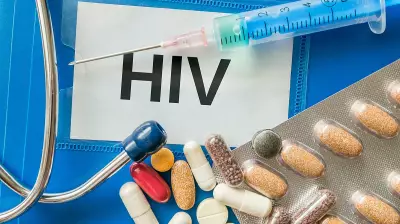
The emergence of new anti-obesity medications like semaglutide and liraglutide has created waves of excitement in medical circles worldwide, including India. These drugs are being hailed as potential game-changers in the fight against obesity, but experts caution against viewing them as miracle cures.
The Science Behind the Hype
These medications work by mimicking gut hormones that regulate appetite and insulin secretion. Clinical trials have shown impressive results, with some patients achieving significant weight loss—up to 15-20% of body weight in certain cases. This represents a substantial improvement over previous generations of weight-loss drugs.
Why They're Not Magic Bullets
Despite the promising results, several critical limitations prevent these medications from being the ultimate solution to India's growing obesity epidemic:
- High Cost Barrier: With monthly treatment costs running into thousands of rupees, these drugs remain inaccessible to the majority of Indians struggling with weight issues.
- Lifelong Dependency: Current research indicates that stopping medication often leads to weight regain, suggesting these may need to be lifelong treatments.
- Side Effect Concerns: Gastrointestinal issues, including nausea and vomiting, are common, and long-term safety data remains limited.
- Accessibility Challenges: Limited availability and regulatory hurdles make consistent treatment difficult across different Indian states.
The Indian Context: A Complex Health Crisis
India faces a unique dual burden of malnutrition and obesity, with urban centers reporting alarming rates of weight-related health issues. The country's obesity problem is deeply intertwined with:
- Rapid urbanization and sedentary lifestyles
- Changing dietary patterns favoring processed foods
- Genetic predisposition to abdominal obesity
- Limited awareness about sustainable weight management
What Experts Recommend Instead
Medical professionals across India emphasize that these new medications should complement, not replace, traditional approaches to weight management:
Lifestyle Modification First: "No medication can replace the fundamental importance of balanced nutrition and regular physical activity," says Dr. Priya Sharma, endocrinologist at Delhi's AIIMS.
Integrated Approach: Successful long-term weight management requires combining dietary changes, increased physical activity, behavioral therapy, and in some cases, pharmacological support.
Public Health Initiatives: Experts argue that preventing obesity through public awareness campaigns and healthier food policies remains more cost-effective than treating it with expensive medications.
The Future of Obesity Treatment in India
While these new drugs represent significant scientific progress, they're unlikely to single-handedly solve India's obesity crisis. The most promising approach involves:
- Developing more affordable generic versions
- Integrating these medications into comprehensive weight management programs
- Focusing on prevention through education and policy changes
- Personalizing treatment approaches based on individual patient needs
As research continues and prices potentially decrease, these medications may become valuable tools in India's healthcare arsenal. However, they should be viewed as part of a broader solution rather than standalone miracles for the complex challenge of obesity.






